This article first appeared in The Alt on October 4, 2017.
Kat So Poetic and Amani O (above) are waiting for their turn. They’ve watched a few performers, hyped by energetic introductions, take the stage in a whirlwind. As KATANI, the rap duo is about to play a local hip-hop show, and they’re the only women on the bill. As musicians who have based the entirety of their art on dismantling misogyny and patriarchy, it seems like the perfect platform. But when the time comes for their introduction, the ‘hype man’ suddenly unravels, as if bored by the incoming set.
“Well, if you like poetry, stick around,” says the introducing MC.
Standing on stage, the duo performs their own hyped introduction—to those who had decided to stay. KATANI came with a rap set and they were going to deliver it, even if they had to make space for themselves.
Proving one’s value as an artist is a constant part of the game for musicians like KATANI. Particularly when, across genres, local music bills and festivals seem to consistently be dominated by white straight males. For the female, femme and gender nonconforming artists in the Capital Region scene, stereotypes and misgivings can hold them back from presenting their art in the same way their male counterparts are able to. Even within their own groups, artists find that their ideas are put on the backburner or their presence becomes the butt of a joke. But with limited representation on stage and a seemingly endless presence of talent watching from the crowd, local artists continue to fight for equal space and inspire more diverse artists to take the stage beside them.
With so few female artists to work with, groups like KATANI or twins and bandmates Whitney and Ally Smith of Cannon the Brave, team up in creative solidarity with family and friends.
Longtime artists like Taina Asili open the space a little further. After playing in a predominantly white male punk band Anti-Product for almost a decade, she took on her current project by turning the traditional band layout on its head. As leader of Taina Asili Y La Banda Rebelde, she has added female, trans and gender non-conforming musicians as well as members of various sexual preference and race. “I made sure that the constellation of the band is very different,” she said, explaining that her band is comprised of a more diverse group of musicians, and that she works to make sure that they are in line with with the ethics and intent of the music and message.
Having support in the face of adversity is a valuable asset, particularly when speaking out against the the inappropriate behavior enacted by venue workers, production staff or other individuals hoping to act out their sense of authority.
“I definitely like being in a band with at least one other woman because there’s at least some sense of solidarity if some sound guy walks into the bar and is looking around for the bands to see who’s playing and just completely ignores us. Shit like that, where we’re just like, ‘Ah, fuck this guy,’” Madeline Rees laughs. The 20-year-old trans woman is a powerhouse. In addition to hosting diverse basement gigs, she is an active musician—a bassist for Shrapnel Warning, Frozen Sun and Nine Votes Short, and the vocalist and banjo player for NPK.
Her experience is fairly common. According to the Capital Region’s leading musicians, female and femme musicians are often overlooked or altogether ignored—no matter how long you’ve been at it.
KATANI recalls a show when a fellow male performer walked up to them, took their water bottles without asking and left. “It’s interesting the way space is taken and how we have been kind of conditioned to move more timidly,” Amani muses.
Laura Carrozza has played for a decade in the Capital Region. As a vocalist of Aficionado—and the sole female in the band that, at times, boasted more than 10 members—she has been a source of inspiration for up-and-coming artists. Throughout her career, the singer says she’s had too many uncomfortable interactions to count but while touring with Aficionado, meeting with new promoters proved to be consistently awkward.
“They would go around and shake everyone’s hand but not mine. I was like, ‘Oh, I suppose I’ll go fuck myself.’”
Carrozza is also lead vocalist and flautist in Albany’s indie rock band Hospital Corners. At a recent show downtown, she and her two fellow vocalists were stopped by the bouncer at the door and asked to get a male bandmate to prove they members of the group.
“He literally said, ‘You have to go get a man to tell me you’re in this band,’” explained Ally Smith, who sang with the band that night. Carrozza added that female fronts or members from the five or six other bands on the bill were also asked to get a male band member, or pulled aside and grilled with questions. “When the show let out, we confronted him and ripped him a new one,” Carrozza said.

Laura Carrozza (left) and Ally Smith (right) on vocals for Hospital Corners. Photo by Bryan Lasky
Melanie Krahmer has been playing music professionally for 15 years as vocalist and drummer for the Albany rock duo Sirsy, she’s toured the entire continental United States playing stages big and small. At some shows, she’s still asked which band is her boyfriend’s.
“Sometimes I’ll be actually loading in my drums and I’ll be told, ‘Oh no, only band members past this point,’” she said.
Asili has been a professional musician for over two decades but like Rees and other young female and femme musicians have experienced, a sound engineer will often go to her male guitarist to ask for levels—who then direct the technician back to Asili—before they play a show. The musician has also had to address echoes of sexism in the studio when, for example, an engineer will try to override her recording decisions, insisting that the process is something she shouldn’t worry about.
But Asili says these experiences can be learning curves in teaching artists to stand up for themselves when their voices, opinions and priorities aren’t being considered.
“In the past, I’ve been like, ‘Well, if they think so. I don’t wanna rock the boat.’ That voice had become so dominant it became hard for me to hear my own. Now, I still have that knee jerk reaction but I can take a breath, collect myself and really advocate—I have a right to my thoughts, opinions, ideas and this is my project. Ultimately, I get the first say in how this should sound and that really shifted how I record and how I sound check,” she explains.
Validation for an ability that is socially viewed as male oriented is another issue that artists like Audrey Goodemote—who is just now cutting her teeth in the local music scene—feel on a regular basis, saying that her ability to play the guitar is often scrutinized more than her male bandmates.
“Girls come to music from a different place than, I think, a lot of guys,” explains Goodemote of the up-and-coming indie band Hate Club. “You’re not doing the whole middle school band thing and you’re not really encouraged to pick up instruments that you might need to play in a band. A lot of girls that I talk to around here will play the keyboard and the clarinet and they’re all really useful and interesting instruments, but they’re not really conventional ‘band’ instruments.”
“I meet more female drummers now than I ever did,” says Krahmer. “I often got the ‘You’re a really good drummer for a girl,’ but never from professionals that I worked with, it was usually a guy that just played the drums in the basement for his friends. People are good for what they’re good for.”
With the rise—and criticism—of callout culture, artists say it’s not about belittling someone who thought their actions were helpful or didn’t think about the weight of their words. It’s about standing up for your right to create in the same space and getting ahead of any harmful and counterproductive norms.
“These are just things that we don’t want to let get out of hand and we don’t want to let them become tolerated and normalized—just shitty, abusive, creepy, sexist, heteronormative shit that makes people feel uncomfortable in the music scene or not valued for their art,” Rees said.
“If a community is dominated by white men, those rules are gonna be made by white men ” says Goodemote. “It’s something to be wary of. When someone says, ‘That’s not how things are done’, that’s usually indicative of ‘This is too progressive for us, this is unconventional, so we’re uncomfortable.’”
The best way to combat that behavior is to make a more diverse presence known, wherever they can and to advocate for those who are marginalized as much, if not more, than oneself.
“When people see a lot of us on stage it’s really hard to ignore. Seeing or being in a band with mostly—or a good portion of—women, it’s good representation to have, even on a local level. Pop and mainstream media representation is one thing, but the local scene being more accepting and completely willing to let people who aren’t men and straight get on stage to do their thing, it’s important,” said Rees.
“I think for me as a cis woman—even with the amount exclusion that I experience—I also have privilege,” says Asili. “I know many trans people in this community who have much less opportunity than I do. In particular, when we’re talking about gender oppression in the music scene, I want to encourage venues, festivals and media to really be paying attention to that, and to work to be more inclusive to trans artists in our community.”
Musicians get on stage because they are doing what they love, “speaking their truth” as Asili puts it, in the way they know best. In the process, they draw audiences who may be musicians who perhaps had not yet thought of taking the stage—or even picked up an instrument.
After playing a set, Krahmer says she is often approached by parents whose daughter—or son—has taken up the kit after watching her play. Ally and Whitney Smith met a set of five-year-old twins after playing the Tang Museum who were thrilled to see another set of twins playing music and shared their dreams of guitar-shredding. Asili has been a mentor to up-and-coming musicians in need of a little courage to say “yes” to themselves and their art and “no” to those who wish to control their art. Rees has been approached by trans audience members who felt inspired by her stage presence.

Madeline Rees on banjo and vocals for NPK. Photo by Ariel Einbinder.
“That was a really good feeling because I kind of need that connection too, that’s one of the ways I self-care and cope with things in my own life—seeing other people who are successful and not getting beaten down by the same things that I am,” Rees explains. “I’ve also seen cis female performers who are just inspiring as shit to me. They get up and do their thing, they just do their art. They don’t care that some guy might be checking out their ass while they turn around to check their EQ settings.”
“Women are often treated as sex objects onstage,” Krahmer attests. “While there are really attractive frontmen of bands that people go to shows just to see, with women appearance somehow counts more. It’s judged more.”
“There’s lots of tokenization when it comes to adding sex appeal or adding diversity to a band,” Rees says. “While it’s good in some instances that someone wants to intentionally reach out to work with a woman who they wanted to work with anyways, there’s just some critique—this is something that happened, especially, before I even came out—of guys just making it seem like women playing music and being in bands is a gimmick. You can’t perform and have it not relate to you being a woman, or for example with me, trans.”
In her 23 years of playing music, Asili says the issue of tokenization affects the majority of her decision making. As a queer, female, person of color fronting a band, she will take a breath and ask herself, why is she really being asked to play a bill?
The artist says that she will no longer agree to play a show at a space where there are no other women, people of color or LGBTQ individuals unless she will be paid, explaining that the fight for equal pay as a female musician is an issue she keeps on the forefront of her mind. “I want to be included equally and be seen equally in all media, venue and opportunity,” she said.
The fight for equal pay, as well as ageism and role assumptions—i.e. the idea that a woman is joining a band just to hook up with with a male musician—are some of the many issues an artist faces under the umbrella of sexism.
“I was objectified a lot more in my younger years and wasn’t taken as seriously. People thought that they could speak over me, make decisions for me. As I’ve gotten older, I’ve had to push through the narrative of people saying, ‘Once you’ve hit a certain age, no one is going to support your music,’ Asili says. “The irony is, as I dissolve that narrative and get older, my career has only gotten more successful. We have to dissolve those narratives to be able to live our truth.”

Taina Asili, leader of Taina Asili y La Banda Rebelde. Photo by Thom Williams.
The artist has also struggled with the criticism of being a mother with a full time music career. By collaborating with other artist moms, she says it’s a new parenting model but it works. She gets to spend time with them as often as any parent and—as they travel with her on tour—show them the world.
For Kat So Poetic, being a musician and a mother are intertwined roles of responsibility. Her children are her inspiration. In addition to rapping to their own beats, Katani often remixes misogynistic lyrics of well known rap songs, rhyming instead about social justice issues.“One of the lines in the songs that we remix is, ‘You know its a problem when your daughter can’t sing along,’” she said.
“We’re not thinking about the kids that are listening. As parents, it’s our biggest responsibility to raise our children up and show them how to move in the world in a way that is not harmful to other people.”
In the end, opening up the space to new, diverse talents comes down to holding one another responsible in both language and action, whether it be the way female and femme artists are spoken to or booked.
“It’s just holding people accountable—and yourself—for what you’re doing at these venues, in discussions, just anything. You have to be more inclusive and make sure people aren’t uncomfortable or just creeped out based on bullshit reasons outside of the art,” Rees says.
Artists like KATANI even make a point to hold their fellow artists accountable for their harmful rhetoric. After one show, they got to talking with a rapper about his lyrics, which consistently referred to girlfriends as “bitches” and “hoes.”
“So, what world is it that the women that you’re dating allow you to call them bitches?” asked Amani. He insisted to the duo that’s not how he refers to women in real life and that the language in his art shouldn’t be censored. But KATANI felt they had gotten to the root of their issue: What place does misogynistic language still have in hip-hop culture?
“‘If that’s not how you talk to women in real life then why would you do that in your music?” Amani said. “Why aren’t you being authentic? Why are you being counter-revolutionary? You’re pushing forward the same systems that also oppress you.”
In recent years, most of the artists agree, there has been more inclusivity in the local area. The DIY scene has show organizers like Rees and Goodemote promoting more female, femme and gender nonconforming artists and social media has helped to bring more established artists closer together. The culture of cities like Albany and Troy have been growing little by little to create space for a more diverse community of performers but there is still a lack of female-run venues and promoters who could be working for more representation.
“I think what is happening in terms of our government has really pushed people to see how important it is to give voice and space to marginalized folks who are being the most harmed by these systems of oppression. But like anywhere, there’s still work to be done to create the opportunities for women and folks of all genders to have the opportunity to perform. We need more of that,” said Asili, who created a Facebook group to do just that in early spring 2017—the now 76-member “Women and Non-binary Musicians of the Capital Region” page is a place for the artists to meet, discover each other’s work and organize booking.
“It’s been great, getting new people to play the scene and break up the cliques,” Ally Smith said.
In the basement scene, artists like Goodemote have helped gathered the troops in a different way. This past June, she reached out to local artists (through social media outlets that included Asili’s group) and the first annual Babe Fest was born, celebrating the local women and non-binary artists that haven’t received the same appreciation as their straight male counterparts.

Audrey Goodemote of Hate Club. Photo by Ariel Einbinder.
“I knew I was taking on an ambitious idea: an all girl, femme, non-gender conforming dominated lineup with over 10 solo artists, spoken word poets and bands was something I was definitely wary about hosting,” she says. “I knew it was sort of making a statement, and a pretty loud one at that. But I was shocked at the support I ended up receiving, everybody seemed to have a really great time.”
Goodemote describes the massive audience—people lined up the stairs of the basement, listening intently—and the range of supporters who turned out for the show, from young newcomers to the scene to local veterans like Hospital Corners, who headlined the show.
“It felt really incredible to see these sort of ‘veterans’ be genuinely excited about a show. I really felt validated like, ‘Okay, this wasn’t just like a chore for people to come to.’”
“I couldn’t be happier that women have more of a voice and platform than in the past,” said Carrozza. “Times have significantly changed for music and shows. In a good way. It’s not perfect, but the headway I’ve seen is enormous. We often play on all femme bills, which would have never happened 10 years ago. In the past year or two, I’ve seen venues and promoters making huge strides in making sure that everyone at their shows feel safe and welcome.”
“Creative thinking and powerful collaboration. What we think can’t be done, will be done,” Asili said.

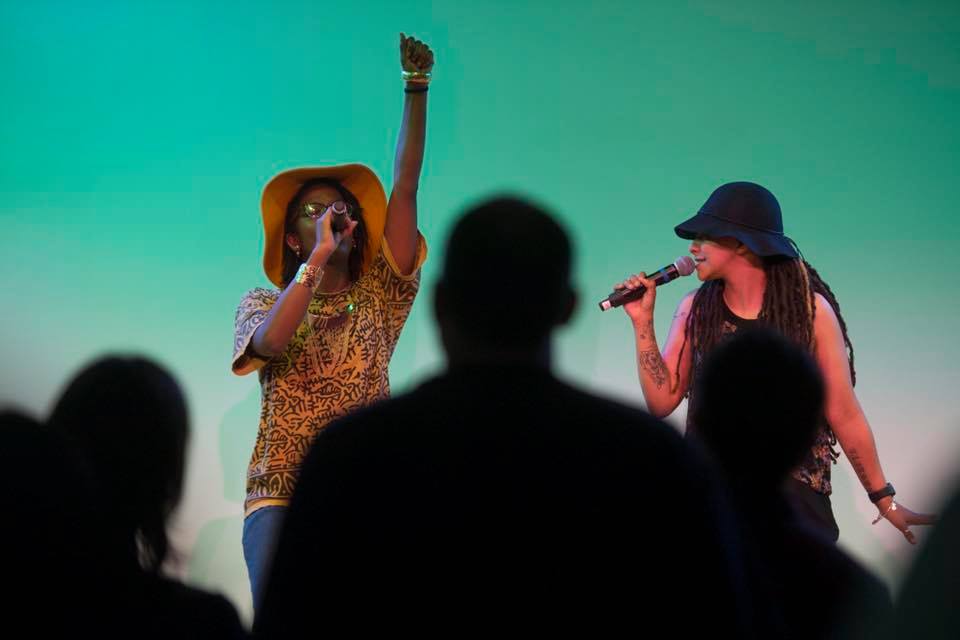
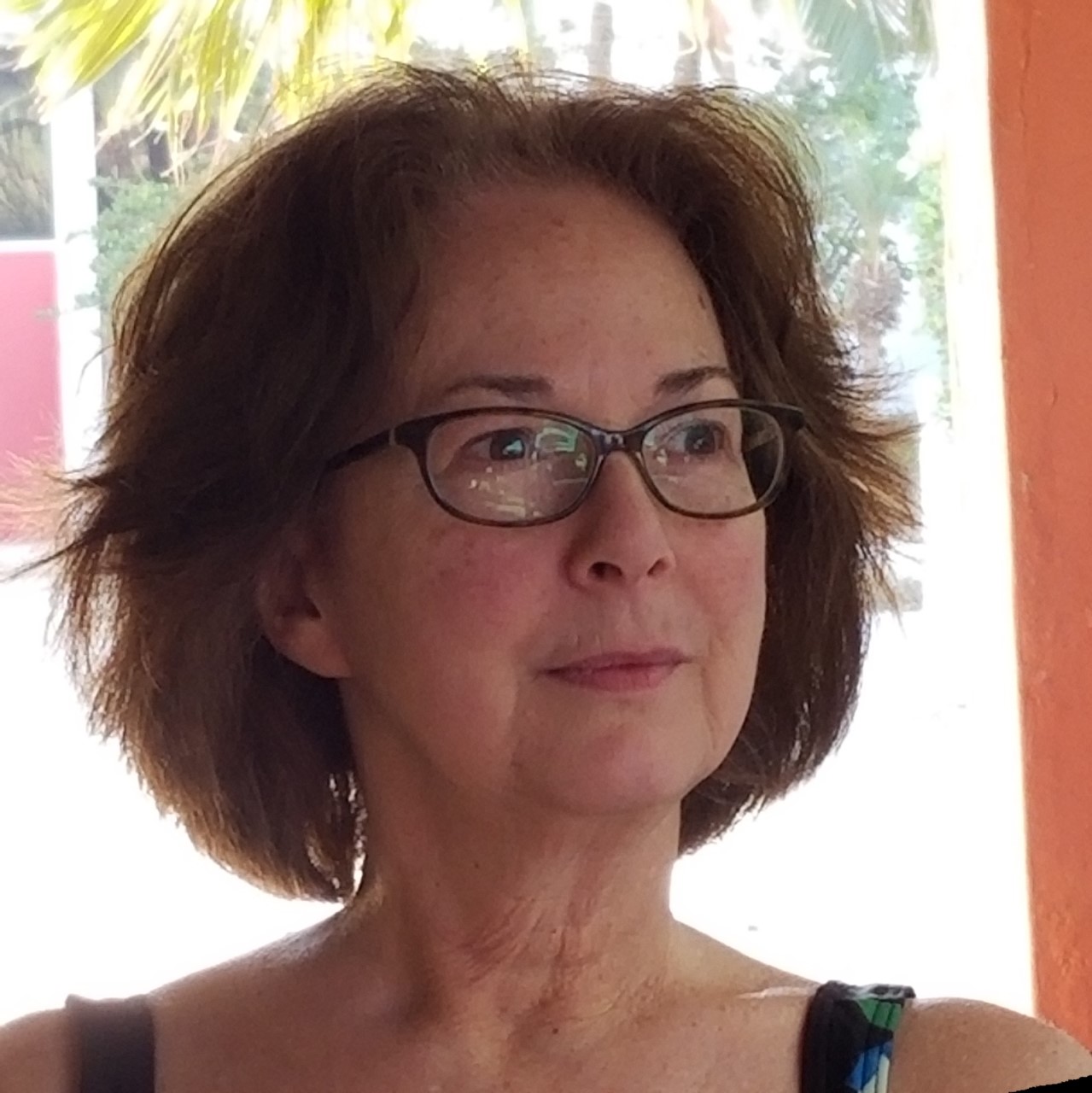
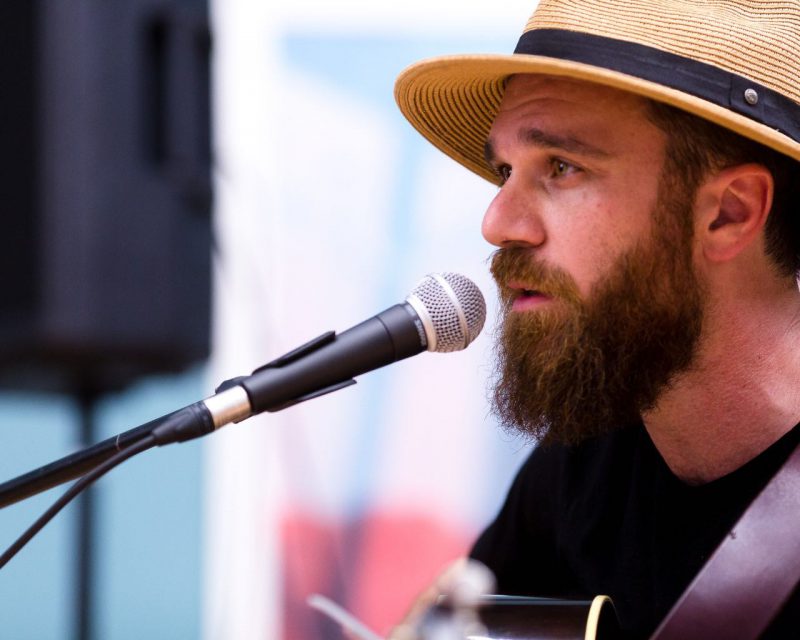
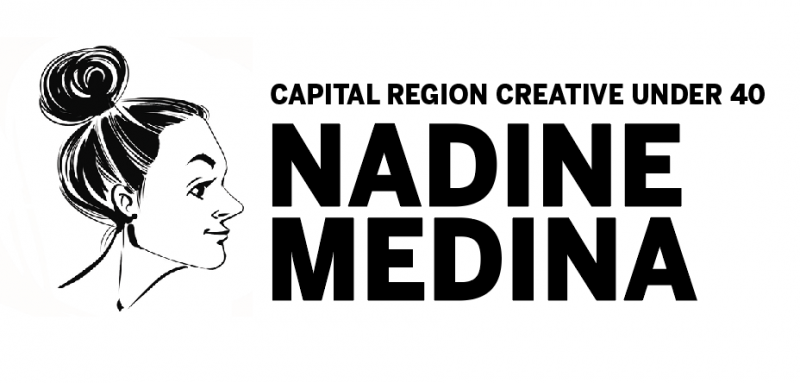
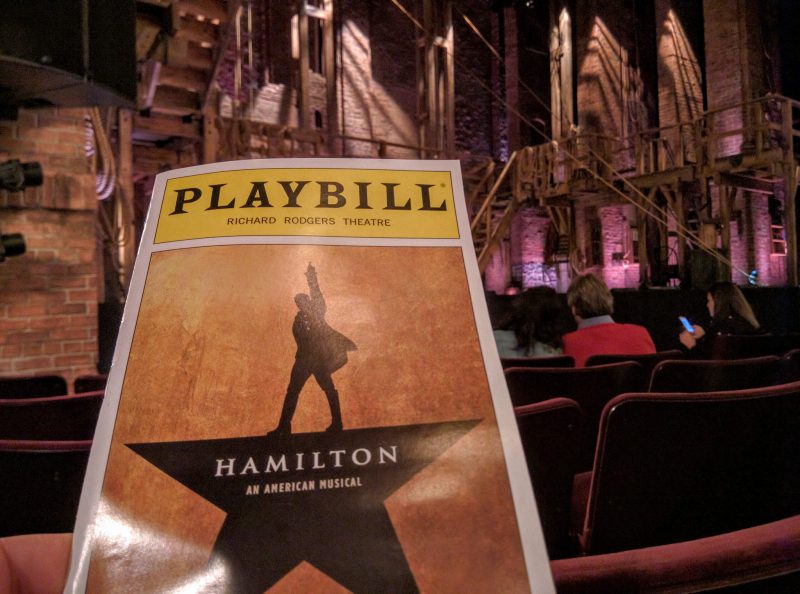
Trackbacks/Pingbacks